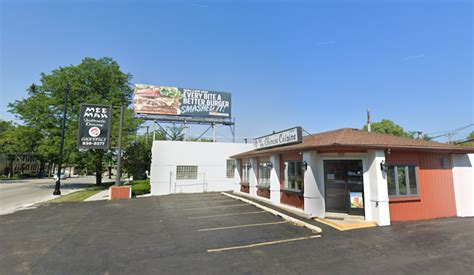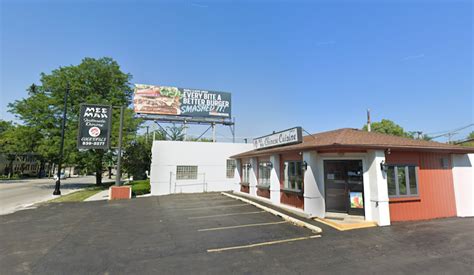
A staggering $3.8 million earmarked for playground improvements in San Francisco’s District 11, specifically for Herz Playground and Balboa Park Playground, has allegedly vanished, leaving families and community leaders outraged and demanding answers. The funds, allocated through the city’s participatory budgeting process, have seemingly disappeared without any visible progress on the promised renovations, raising serious questions about accountability and oversight within the city’s Recreation and Park Department.
San Francisco families are furious after learning that $3.8 million designated for the renovation of two playgrounds in District 11 has apparently gone missing, with little to no progress made on the promised upgrades. The vanished funds, approved through a community participatory budgeting process, were intended to revitalize Herz Playground and Balboa Park Playground, both vital recreational spaces for local children and families.
According to Supervisor Ahsha Safaí, who represents District 11, the allocated funds included $2.8 million for Herz Playground and $1 million for Balboa Park Playground. “It’s outrageous. It’s completely unacceptable,” Safaí stated, emphasizing the community’s deep disappointment and frustration. The supervisor further explained that the funds were secured through a rigorous participatory budgeting process, where residents directly voted for projects they wanted to see prioritized in their neighborhoods.
The lack of transparency surrounding the missing funds has ignited a firestorm of criticism aimed at the San Francisco Recreation and Park Department. Community members are demanding a full investigation into where the money went and why the playground renovations have not commenced. The situation has eroded trust in the city’s ability to manage public funds effectively and deliver on its promises to improve community infrastructure.
“These are projects that the community identified, voted on, and were promised,” Safaí told Yahoo News. “To have the rug pulled out from under them after all this time, it’s a slap in the face.”
The participatory budgeting process is designed to empower communities by giving them a direct say in how public funds are spent. In this case, residents of District 11 dedicated significant time and effort to identify and prioritize the playground projects, believing that their voices would be heard and their needs addressed. The apparent disappearance of the allocated funds has undermined this democratic process, leaving many feeling disenfranchised and betrayed.
The Recreation and Park Department has yet to provide a clear explanation for the missing funds or a timeline for when the playground renovations will finally begin. This silence has only fueled the community’s anger and suspicion, prompting calls for greater transparency and accountability in the department’s financial management practices.
The Herz Playground, in particular, is in dire need of renovation. The existing play equipment is outdated, worn, and in some cases, unsafe. The playground’s dilapidated condition poses a risk to children who use it, and it detracts from the overall quality of life in the surrounding neighborhood. The promised $2.8 million renovation was intended to address these issues by replacing the old equipment with new, modern play structures, improving accessibility for children with disabilities, and enhancing the overall safety and aesthetics of the playground.
Similarly, the Balboa Park Playground, while not in as severe a state of disrepair as Herz Playground, is also in need of upgrades. The $1 million allocated for its renovation was earmarked for improvements to the play equipment, landscaping, and surrounding amenities. These improvements were intended to make the playground a more attractive and enjoyable space for families and children.
The failure to deliver on these promised playground renovations has had a significant impact on the community. Local families rely on these playgrounds as safe and accessible places for their children to play, exercise, and socialize. The lack of adequate recreational facilities has limited opportunities for children to engage in healthy activities and has negatively affected their overall well-being.
Beyond the immediate impact on children and families, the missing funds scandal has broader implications for the city’s governance and financial management. It raises questions about the effectiveness of the city’s oversight mechanisms and the accountability of its departments. If $3.8 million can disappear without a trace, it suggests that there are serious weaknesses in the city’s financial controls and that taxpayer dollars may be at risk of being misappropriated or mismanaged.
Supervisor Safaí has vowed to continue pressing the Recreation and Park Department for answers and to ensure that the playground renovations are finally completed. He has called for a thorough investigation into the matter and has promised to hold those responsible accountable for their actions. He has also pledged to work with the community to develop a plan to move forward and to ensure that the promised improvements are delivered as soon as possible.
The community is demanding that the Recreation and Park Department provide a detailed accounting of the $3.8 million in question, including where the money was allocated, how it was spent, and why the playground renovations have not commenced. They are also calling for greater transparency in the department’s financial management practices and for stronger oversight mechanisms to prevent similar incidents from happening in the future.
The San Francisco playground donations scandal is a stark reminder of the importance of accountability and transparency in government. It highlights the need for robust oversight mechanisms to ensure that public funds are used effectively and that promises made to the community are kept. The outcome of this scandal will have a significant impact on the city’s reputation and on the public’s trust in its government.
The situation is further complicated by the Recreation and Park Department’s existing budget constraints and ongoing challenges with managing its vast network of parks and recreational facilities. The department has faced criticism in the past for its slow response times to maintenance requests, its inadequate staffing levels, and its overall lack of responsiveness to community needs.
The missing playground funds have exacerbated these existing concerns and have further strained the relationship between the department and the community. Many residents feel that the department has not been transparent or forthcoming in its communication about the playground renovations, and they are frustrated by the lack of progress on the promised improvements.
The scandal has also sparked a broader debate about the city’s priorities and its commitment to investing in its parks and recreational facilities. Some argue that the city has not allocated sufficient resources to these vital community assets and that the lack of funding has contributed to their deterioration and decline.
Others contend that the city has adequate resources but that they are not being managed effectively. They point to the missing playground funds as evidence of mismanagement and a lack of accountability within the Recreation and Park Department.
Regardless of the underlying causes, the San Francisco playground donations scandal has highlighted the need for significant reforms in the city’s financial management practices and its approach to park maintenance and renovation. The community is demanding that the city take swift and decisive action to address these issues and to restore trust in its ability to manage public funds effectively.
The longer the playground renovations are delayed, the greater the negative impact on the community. Children are being deprived of safe and accessible places to play, families are being denied opportunities to spend time together outdoors, and the overall quality of life in the neighborhood is being diminished.
The community is determined to hold the city accountable for its promises and to ensure that the playground renovations are finally completed. They are organizing community meetings, launching online petitions, and working with elected officials to demand action. They are also exploring legal options to recover the missing funds and to ensure that those responsible are held accountable.
The San Francisco playground donations scandal is a complex and multifaceted issue with significant implications for the city’s governance, financial management, and community well-being. The outcome of this scandal will serve as a test of the city’s commitment to accountability, transparency, and responsiveness to the needs of its residents.
Adding to the complexity, the participatory budgeting process itself is now under scrutiny. While lauded for its democratic approach, some critics argue that it can be vulnerable to manipulation and that it lacks adequate safeguards to prevent mismanagement of funds. The San Francisco case raises questions about the effectiveness of the participatory budgeting process in ensuring that community priorities are actually implemented and that public funds are used responsibly.
Furthermore, the Recreation and Park Department’s internal procedures for managing capital projects are also being questioned. The department is responsible for overseeing a large number of construction and renovation projects throughout the city, and the missing playground funds suggest that there may be weaknesses in its project management systems.
The department’s ability to track funds, monitor progress, and ensure accountability is now under intense scrutiny. An independent audit of the department’s capital projects is being called for to identify any systemic problems and to recommend improvements.
The political ramifications of the scandal are also significant. Supervisor Safaí has made the missing playground funds a central issue in his agenda, and he is facing pressure from his constituents to deliver results. The scandal could also impact the upcoming elections, as voters may be less likely to support candidates who are perceived as being soft on accountability or who are associated with the Recreation and Park Department.
The situation is further complicated by the ongoing budget challenges facing the city. San Francisco is grappling with a significant budget deficit, and city departments are under pressure to cut costs and streamline operations. The missing playground funds have raised concerns that the city may be forced to divert resources from other essential services to cover the losses.
The community is demanding that the city find a way to fund the playground renovations without cutting other vital programs. They argue that the playground projects are essential investments in the city’s future and that they should not be sacrificed in the name of budget austerity.
The San Francisco playground donations scandal is a cautionary tale about the importance of vigilance and accountability in government. It underscores the need for strong oversight mechanisms, transparent financial management practices, and a commitment to responsiveness to the needs of the community. The outcome of this scandal will have a lasting impact on the city’s reputation and on the public’s trust in its government.
The saga continues to unfold, with community meetings planned and investigations underway. The residents of District 11 are determined to get answers and to ensure that their children finally have the safe and modern playgrounds they were promised. The spotlight remains firmly fixed on the San Francisco Recreation and Park Department, as it faces increasing pressure to explain the missing funds and to restore the community’s faith in its ability to manage public resources effectively. The delay in the project is also impacting property values in the surrounding areas, as potential buyers are deterred by the lack of amenities for children. This has added another layer of frustration for residents who were already dealing with the high cost of living in San Francisco.
The situation also highlights the disparities in access to resources between different neighborhoods in San Francisco. While some wealthier neighborhoods have well-maintained parks and playgrounds, other lower-income areas struggle to provide adequate recreational facilities for their residents. The missing playground funds underscore this inequality and raise questions about the city’s commitment to equitable distribution of resources.
The scandal is also attracting attention from outside San Francisco, as other cities with participatory budgeting programs are watching closely to see how the situation unfolds. The outcome of this case could have implications for the future of participatory budgeting and for the way cities manage public funds across the country.
The San Francisco playground donations scandal is a complex and evolving situation with far-reaching consequences. It is a story of broken promises, misplaced trust, and a community determined to hold its government accountable. As the investigation continues and the community demands answers, the spotlight remains on the city’s Recreation and Park Department and its ability to restore faith in its management of public resources. The repercussions of this scandal will likely be felt for years to come, shaping the city’s approach to governance, financial management, and community engagement. The long-term impact on the children who have been deprived of the promised playgrounds is also a major concern, as access to recreational facilities is crucial for their physical, social, and emotional development.
The Recreation and Park Department has a long history of challenges, including aging infrastructure, staffing shortages, and a complex bureaucratic structure. These issues have made it difficult for the department to effectively manage its vast network of parks and recreational facilities. The missing playground funds have only exacerbated these challenges and have further strained the department’s resources and capacity.
The city is now under pressure to implement comprehensive reforms to address these systemic problems and to prevent similar incidents from happening in the future. These reforms may include streamlining the department’s bureaucratic processes, increasing its staffing levels, and improving its financial management systems.
The community is also demanding greater transparency and accountability from the department. They are calling for regular audits of the department’s finances, public disclosure of its contracts and spending, and a stronger role for community members in the department’s decision-making processes.
The San Francisco playground donations scandal is a watershed moment for the city. It is an opportunity to address long-standing problems, to improve governance, and to restore trust in government. The community is determined to seize this opportunity and to ensure that the city emerges stronger and more accountable as a result.
The delay in the playground renovations is also impacting local businesses. The lack of amenities for children in the area has made it less attractive for families to visit, which has hurt the local economy. Business owners are concerned that the situation will continue to deteriorate if the playground renovations are not completed soon.
The community is urging the city to work with local businesses to mitigate the negative impact of the delay and to support them during this challenging time. They are also calling for the city to prioritize the playground renovations and to ensure that they are completed as quickly as possible.
The San Francisco playground donations scandal is a complex and multifaceted issue with significant implications for the city’s governance, financial management, community well-being, and local economy. The outcome of this scandal will serve as a test of the city’s commitment to accountability, transparency, responsiveness, and equitable distribution of resources.
Frequently Asked Questions (FAQ):
1. What exactly happened with the $3.8 million allocated for the playground renovations?
The $3.8 million, designated for the renovation of Herz Playground ($2.8 million) and Balboa Park Playground ($1 million) in San Francisco’s District 11, has seemingly disappeared. Despite being approved through a community participatory budgeting process, no significant progress has been made on the promised upgrades, raising concerns about where the money went. Supervisor Ahsha Safaí described the situation as “outrageous” and “completely unacceptable.” An investigation has been launched to determine the whereabouts of the funds.
2. Why is this considered a scandal?
It is a scandal because the money was specifically allocated for these projects through a participatory budgeting process, where the community directly voted and prioritized these improvements. The lack of progress and the inability to account for the funds represents a failure of accountability and transparency on the part of the San Francisco Recreation and Park Department, eroding trust in the city’s management of public funds. As Safaí said, “To have the rug pulled out from under them after all this time, it’s a slap in the face.”
3. What is the participatory budgeting process, and how was it involved in this situation?
Participatory budgeting is a democratic process where community members directly decide how to spend public funds. In District 11, residents identified and prioritized the playground renovations, believing their choices would be implemented. The alleged disappearance of the funds undermines this process, leaving residents feeling betrayed and questioning the effectiveness of participatory budgeting if allocated funds are not used as intended.
4. What is the San Francisco Recreation and Park Department’s response to the missing funds?
As of the latest reports, the San Francisco Recreation and Park Department has not provided a clear explanation for the missing funds or a timeline for when the renovations will begin. This silence has fueled community anger and suspicion, prompting demands for a detailed accounting of the money and greater transparency in the department’s financial management practices.
5. What are the next steps being taken to address the issue and ensure the playground renovations are completed?
Supervisor Safaí has vowed to continue pressing the Recreation and Park Department for answers and ensure the renovations are completed. A thorough investigation has been called for to determine where the money was allocated, how it was spent, and why the projects have not commenced. The community is organizing meetings, launching petitions, exploring legal options, and working with elected officials to demand action and hold those responsible accountable.









